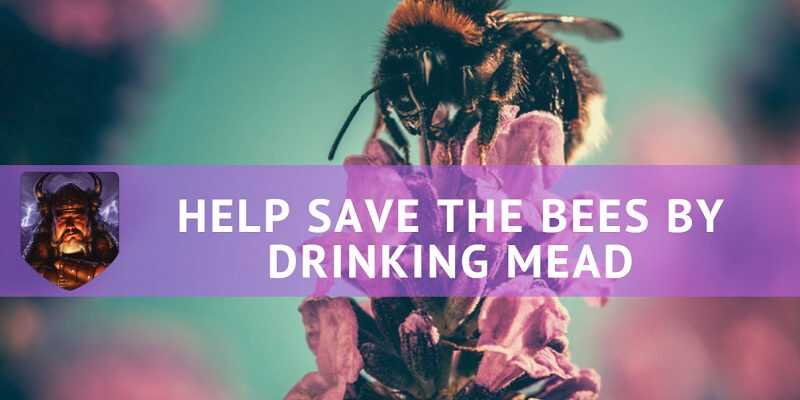
Help Save The Bees By Drinking Mead
Believe it or not, drinking mead is not only delicious, but it’s also environmentally responsible – you’re helping to save the bees. Beekeepers are the people who supply the base ingredient in mead and the past few years have not been good for honeybees, either of the wild variety or farmed. However, the burgeoning mead industry is – naturally – tied to honey production, and indulging in the one helps the efforts of the other.
Regenerative Honey
For the past few years, there have been massive die-offs of honeybees, leading to a small but growing number of regenerative honey operations. This differs from many other agricultural endeavors given how honeybees impact the local ecosystem. Bees pollinate plants after all, which leads to blooming flowers and benefits to other flora, which few others organisms do.
It is quite literally the case that most plants depend on bees to survive.
As so many honeybees are lost to global warming, pollution and other factors, this has lead honey producers to turn to regenerative agriculture practices.
What Is Regenerative Agriculture?
Regenerative agriculture is a holistic and restorative approach to farming that leads to the restoration of an ecosystem, by growing crops and plants that bolster and support growth of other plants.
How Honey Farming Benefits the Ecosystem
Since farming bees benefits the plants in and around where honey is grown, regenerative honey growing is producing some real results in areas that have begun to stagnate due to honeybee die-off.
One of the drivers of this activity has been the mead industry. As more mead operations commence production, that leads to a greater demand for honey. As a result, mead makers have been at the forefront of encouraging better growing practices such as regenerative honey and sustainable operations.
Sustainable Honey Means Sustainable Mead
It also follows that sustainable honey practices lead to sustainable supply for mead-makers, and there are a number of mead companies that have sustainable honey operations either supplying or in some cases, directly attached. Some mead operations, as it turns out, grow their own – just like many of the finest wineries maintain their own vineyards.
The Link Between Honey Quality and Mead Quality
There is also a tangible benefit when it comes to the end product itself. Healthier bees lead to better quality honey, which in turn leads to a better quality mead. Just as brewing beer with the best available barley, water and hops creates a better beer and growing better grapes leads to a better wine, high-quality honey yields quality meads. This puts a better product out there for the purchaser to enjoy.
Elevate Your Moments with Quality Mead
And drinking a quality beverage, paired with a meal or enjoyed by itself for the imbiber’s refreshment, is something that enhances the overall quality of one’s life if even only for a few moments. That is what mead is all about. If you’re in need of some quality honey wine take a look at our mead store.

Help Save The Bees By Drinking Mead
